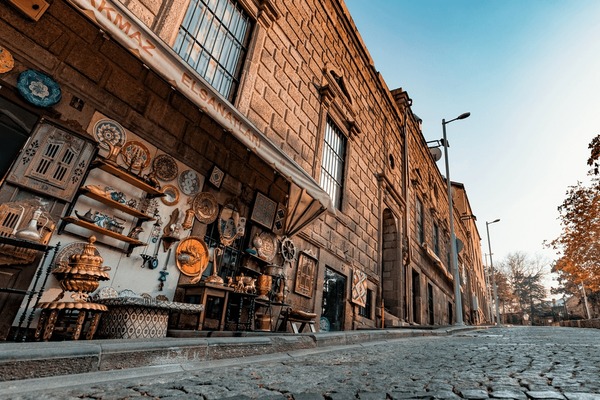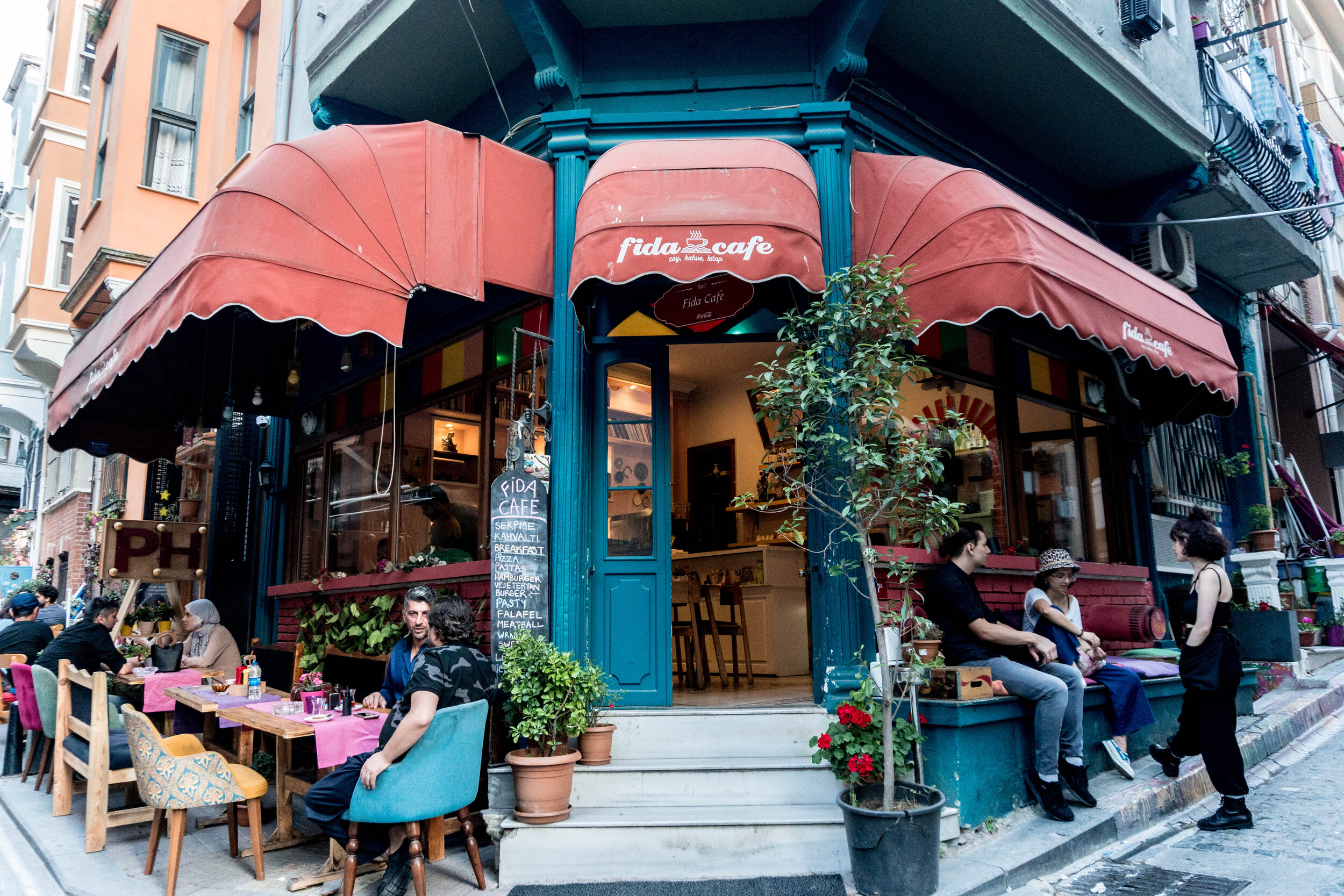- Oct 3, 2018
- 3,610

The chilly wind cut through the narrow streets of Istanbul, the city’s fall bite sharp enough to make Ayşe Çiller pull her coat tighter around herself. She moved at a steady pace as she scanned the bustling street. The small cafes and boutiques lining the sidewalks were a mix of the old and the new, brightly lit store windows showcasing the latest fashions, interspersed with more traditional Ottoman architecture that had somehow survived decades of change. The constant rhythm of the city’s pulse, footsteps, conversations, the hum of passing cars, was strangely soothing. But for Ayşe, it was just noise.
She knew that she was being followed, watched from a distance, just as they had been every day since she’d become leader of the CHP. Türkiye slipped closer and closer into a deep coma induced by authoritarianism. Nevertheless, for Ayşe the CHP was going to move away from being a rubber stamp and turn into an opposition party. It did not ease however the feeling of being watched, monitored, but never fully engaged with. Whoever it was, the intelligence services or the new gestapo-like agency, they usually kept their distance, blending into the shadows of the city.
She paused in front of a high-end clothing store, her hands slipping into her coat pockets. She casually glanced at the display. She took a look at the sleek overcoats and colorful dresses on display, nothing that particularly caught her attention. Her eyes flicked past the window, beyond the reflection of the store, into the street beyond it. There. A figure near the bus stop, tall, nondescript. Ayşe noted the posture, the stance. The slight shift of the man’s body when he noticed Ayşe looking. An amateur she thought.
He turned away from the window, his gaze now sweeping across the street at the other potential surveillance spots. A small van parked on the corner, windows tinted just a shade too dark. And the old man with the newsstand, he’d been standing there for hours, glancing at his watch, then at Ayşe, as if he had somewhere else to be but was unwilling to move. A team of the Gizli Müdafaa Teşkilatı. GMT operatives keeping tabs on her, amateurs, Ayşe thought.
She continued walking, her eyes scanning the street with a detached indifference. The GMT operatives, three men in total, were keeping their distance, each operating under the same protocol. One man trailed slightly behind her, moving with the crowd, not too close but not too far, just within earshot in case Çiller ran into anyone. Another was ahead of her, moving down the street, occasionally glancing over his shoulder. The third man was across the street, hidden among the pedestrians somewhere.

She approached her usual spot, a café with its warm lights spilling onto the street like a welcoming glow against the gray afternoon sky. The smell of freshly brewed coffee lingered in the air. Ayşe hesitated at the door for a brief moment, her gaze sweeping across the cafe’s interior through the large window. The place was quiet, with only a few patrons scattered at tables. Nothing too unusual. Nothing to make her nervous.
She entered the café without breaking her stride, the bell above the door giving a soft chime as she pushed it open. Inside, the warmth of the café hit her immediately, a welcome reprieve from the cooler winds outside. She made her way to the counter, giving the barista a polite nod as she ordered her usual coffee.
Ayşe’s fingers wrapped around a steaming cup of Turkish tea. Her dark glasses were perched on the edge of her nose. Occasionally her eyes flicked over the cafe’s patrons, most of them disinterested locals wrapped in layers of coats, murmuring quietly amongst themselves. Since becoming the leader of the CHP she wondered if it’d place her friends at risk…and force her to change her return.
Just then she caught a glimpse of movement through the reflection in the window, a slim figure moving between the scattered pedestrians outside. She glanced down to her watch, taking note of the time.
A woman dressed in an elegant dark grey coat with a beige scarf opened the door to the cafe, the bells chiming as they did for Ayşe when she walked in. Her dark hair fell just past her shoulders. The lady ordered something at the front of the cafe before walking to take her seat. Her heels clicked sharply against the wooden floor. The woman’s approach was casual, almost unremarkable. She held a large handbag in one hand, her other arm hanging loosely by her side. But as she reached her table, there was a brief, calculated shift in her stride, just enough to make it seem like an accident when she bumped into her chair.
Her shoulder collided with Ayşe’s side, and for a fraction of a second, Ayşe felt a jolt of confusion ripple through her body. Her coffee cup wobbled dangerously, but she was already leaning down to pick up the bag that Ayşe had momentarily placed on the table next to her."Üzgünüm," she said in Turkish, her tone sweet as she straightened up and held Ayşe’s bag in her hands, offering it to Ayşe like an innocent gesture.
For a moment, Ayşe was caught off guard, the shove was rather rough."Endişelenme," Ayşe said back as she dusted herself and took the bag. Sitting down. The lady had already disappeared into the group of people behind her. She slowly sipped her tea, greeting a few patrons that recognized her.
As the time ticked slowly, she reached for her bag when she felt a paper along the brim. A small folded piece of paper. Just then a slight flicker of movement caught his eye, a man sitting near the window staring at her. No doubt tracking her. Ayşe didn’t react. She went to the bathroom, applying lipbalm but using the privacy of the female lavatories to read the note. Meet me at the basement of Topkapı Palace.
Her heart skipped. The note was thin, hidden in the lining of the bag. Her mind was already working out who she worked for. Worried that the GMT wanted to silence her already. Yildirm couldn’t be that brazen she thought. No…it must be someone else she thought. Afterall, why go through all the trouble, the GMT would just sweep her up off the streets.
She slipped the note into his beige overcoat, deliberately checking her surroundings as she left the cafe, walking past the guy at the counter. The cold air outside of the café hit her immediately as Ayşe stepped onto the Istanbul streets. She adjusted her turtleneck, her mind still racing over the note hidden in the lining of her bag.
Ayşe adjusted her pace slowly as she turned onto the busy street. Topkapı was only a few blocks away. The anonymity of it unsettled her. Whoever had planted it on her, whoever had sent her to that basement, had to know the risks. Ayşe’s eyes scanned the street, constantly moving, always alert. A group of teenagers were laughing and walking by, their faces illuminated by the orange hue of street lamps. Ayşe’s gaze flicked from side to side, but none of them held any significance to her.

Ayşe’s thoughts were still on the note. Topkapı had long since lost its significance before the fall of the Sultanate. Its faded pavilions and sun-burnished courtyards stood as relics of an age when Ottoman galleys had cast long shadows across the Mediterranean. Yet it was not history that unsettled her now. It was the basement. The idea of convening in that hollowed undercroft tugged at something instinctive. Too many narrow passages honeycombed the stone beneath the complex, too many forgotten chambers where secrets might gather dust, or where a person might simply vanish, if the right hands knew the architecture well enough to oblige.
Her gaze flicked toward the men in dark coats who loitered around the square in front of the palace. As she approached the massive building, she passed a group of tourists standing in front of the palace, admiring the imposing structure. The lobby was bustling with people, the sound of echoes from heels on the marble floor and conversations drifting up into the high ceilings.
As she walked inside the building, her brain began to put things together…she muttered under his breath, as she thought, was this message some kind of setup… a trap meant to pull her into something darker?
She glanced at her watch, only fifteen minutes had passed since he left the café. Time was moving slowly, but the tension in her body only increased. Her fingers grazed her coat pocket again, feeling the smoothness of the note’s folded edges.
She moved through the lobby, toward the staircase, which would take her to the lower levels. She checked for any signs of surveillance as she entered the lower catacombs of the building. The detail watching her were no where in sight.
Ayşe reached the stairs leading down to the basement and into the private parts of the Palace which used to house the Sultans of the 19th Century. She hesitated just for a moment, taking a moment to scan the area again.
As Ayşe got down, there he saw a well-built man. She paused…her heart beating as she thought it was over for her. The man simply raised his hand. “Durmak.” He said as he opened the door, allowing Ayşe to enter. Ayşe gulped as she went into the room. With that, he entered the room, private and away from any prying ears, to see an older looking man…the very one looking at his watch earlier on the street. He turned around and stared at Ayşe for a few moments before opening his mouth.
“Mrs. Çiller,” he began rather courtesyly for a man who had Ayşe's head spinning the past half an hour, “I regret the means by which this meeting was arranged. Were the matter anything less than urgent, I would not have resorted to such measures. Please… take a seat.” His hand extended gesturing to the empty chair beside him.




